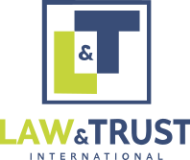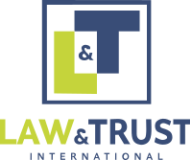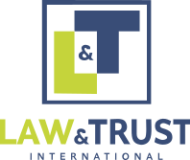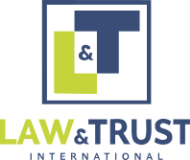FAQ on the establishment of a foundation in Guernsey
News:
Date added: 04.07.2016What law governs the activities of the foundations in Guernsey?
The Foundations Act (of Guernsey) of 2012
What types of foundations can be used?
Foundations in Guernsey are multifunctional and versatile and can be created for charitable or non-charitable purposes, and they can also have beneficial owners. At the same time, they can be of mixed forms, combining goals and beneficiary interests.
What is the foundation?
In Guernsey, the foundation is a registered legal entity with a separate legal personality that manages assets on its own behalf. Thus, by apparent value, it is more like a company than a trust. However, unlike the company, it does not have shareholders to whom the board of directors is accountable. Instead, the foundation manages its assets for the benefit of the beneficiaries or for certain purposes, and two cases are also possible in accordance with the structure of the fund. Therefore, although it resembles a company, it functions more like a trust.
Why establish a foundation?
When creating a trust, the legal ownership of assets passes from the founder of the trust, when the foundation is established, the assets pass from the property of the individual (it is better to describe it as inheritable value). The key difference is that the foundation is a legal entity, the registration of which is confirmed in the Guernsey register.
Foundations can also be used as holding structures for the "family office" of private trust companies, and can also be useful for structuring debt and private equity.
Foundations are traditionally used for charitable purposes. As for the foundations in Guernsey, they can be of a mixed type, covering charitable tasks and individual beneficiaries.
What are minimum requirements for the establishment of a foundation?
There are no minimum legal requirements, except for the availability of initial capital (which may be a nominal amount).
What assets can be transferred to the foundation?
Basically, these are money, investments, land parcels, buildings, paintings, furniture, jewelry, small vessels, aircraft and even astonishing wines. Some assets generate profits, which usually are calculated differently for capital, income and for future tax purposes.
Who are the participants of the foundation?
Basically, these are the Founder and the Council. There can also be a legal representative. Their duties are described below.
Who can be the founder of the foundation?
The founder can be an individual or a company. Nevertheless, there can often be tax consequences for the founder and, as a rule, before starting to perform the functions, tax consultations are required.
What are the costs for the activities of the foundation?
The costs can vary depending on your requirements.
What is the process of establishing the foundation?
In Guernsey, only a trustee who has a license can apply for registration of the fund.
What are the functions of the council and who can be in its composition?
The council may include individuals and legal entities, as well as a founder. Legislation of Guernsey does not require a licensed trustee to be among the mambers of the council, but the presence of the trustee in the council is nevertheless recommended. The Council acts in a manner that the directors of the company would act and has obligations to the foundation (in contrast to the founder) to act in good faith in a lawful manner and to comply with the Charter and Rules.
What documents are required?
In addition to the standard proper documentation, there is also a set of rules for the foundation. The charter defines common goals, and the rules determine how the Council can function.
How long does the registration take?
It is not long enough, but the time frame may vary depending on your requirements; probably our standard package of documents will be used, and it may be necessary to have new draft documents. We believe that the most common delay factor is the collection of supporting background information required by the code of rules and regulations of Guernsey.
Does the Council include only corporate members or individuals can also be in it?
The Council can involve both corporate members and individuals.
Who is the legal representative and should I have it?
Foundations in Guernsey can have beneficiaries endowed with rights and not endowed with rights. Beneficiaries who are not endowed with rights can not carry out procedural actions in relation to the foundation. Thus, in the event that all or some of the beneficiaries are not endowed with rights (powers), a legal representative must be appointed. Legal representative is also required if the foundation is created only for the implementation of certain purposes (i.e. if there are no beneficiaries in it).
Legal representative is responsible to the founder to act in good faith on legal grounds and ensure compliance with the Charter, rules and objectives of the foundation. Legal representative can be the founder, and legal entities are also allowed to act in this role. A member of the Council can not act as a legal representative.
Should the detailed information on the foundation be kept in the Guernsey register?
Yes, but only part A is with no access restrictions. This information is about the name and registration number of the foundation, the name and address of the legal representative (if any) and members of the council, as well as the details of the registered office. The charter is also registered, but can only be disclosed strictly in certain circumstances.
Is there an annual submission of reports to the Register?
Yes, and we can provide advice on this.
Is it necessary to prepare and audit financial statements?
As trustees, we believe that we can not properly manage property if the accounting is not maintained at an adequate level, so we always prepare financial statements for the year. There are no audit requirements.
Is it necessary to submit an annual accounting report to the Register?
No.
Are there any currency or financial constraints?
No.
Is it possible to establish a foundation as a charitable one?
Yes, charitable and philanthropic foundations are allowed.
What control does the founder exercise over the Council?
Unlike some jurisdictions, there are restrictions in Guernsey regarding the powers that the founder can reserve in order to ensure the purposes of the Charter. The founder has the right to make amendments to the Charter and Rules, or to modify them, to recognize them as invalid, and to terminate the activities of the fund. Powers that relate directly to the founder can be exercised only during the period of his life (if the founder is a legal entity, the powers can be exercised within 50 years from the time the foundation was established).
General administrative powers of the founder may include the appointment of officials of the foundation and decision-making regarding investments, but at the same time legal advice should always be provided. If the founder has too many powers, the original purpose of the foundation may not materialize.
Is it allowed to move/change the place of foundations?
Yes, a foreign foundation can apply for registration as a foundation in Guernsey. Jurisdiction of the foundation sometimes has an impact on tax planning and asset protection, so you will always need legal advice.
Is it possible to merge the foundation in Guernsey with another legal entity?
No, legislation of Guernsey does not provide for the merger of foundations with other foundations or with other legal entities.
Is there a fixed period of time for the operation of the foundations?
No, the activities of the foundations in Guernsey are carried out on a permanent perpetual basis.
Are regulators authorized to request data regarding the identity and the qualifications of the founder and beneficiaries?
Data regarding the identity of the founder are entered in the Guernsey Register. Some other data may be disclosed to regulatory authorities with the help of a local member of the council or registered agent, but only strictly in certain circumstances.
Are regulators authorized to request reporting and accounting information of foundations?
Again, only through a local member of the council or registered agent, but only strictly in certain circumstances.
Can such information be exchanged between other jurisdictions?
Only upon official request or in case of existence of legal access, and strictly on condition of observance of rules and norms of such access.
Private trust foundations in Guernsey
The foundation in Guernsey can be used as an alternative to typical private trust companies with a dual structure. The fund is a legal entity with full legal competence that can carry out activities and perform its duties as a trustee, just like a company acting as a trustee. Unlike the company, the foundation does not have members or shareholders.
Private trust foundation does not have beneficiaries; accordingly, legal representatives must be appointed whose duties include the implementation of the objectives of the foundation. Legal representative can be a trusted adviser or act as an enforcer (controller), who has the authority to appoint and expel members of the Council of the foundation.
Law&Trust International will register a foundation in Guernsey for you, the team of highly qualified specialists, who will provide you with high-quality legal services and will accompany the entire registration process of the foundation, is always at your service. For more detailed information, please contact our specialists.

















